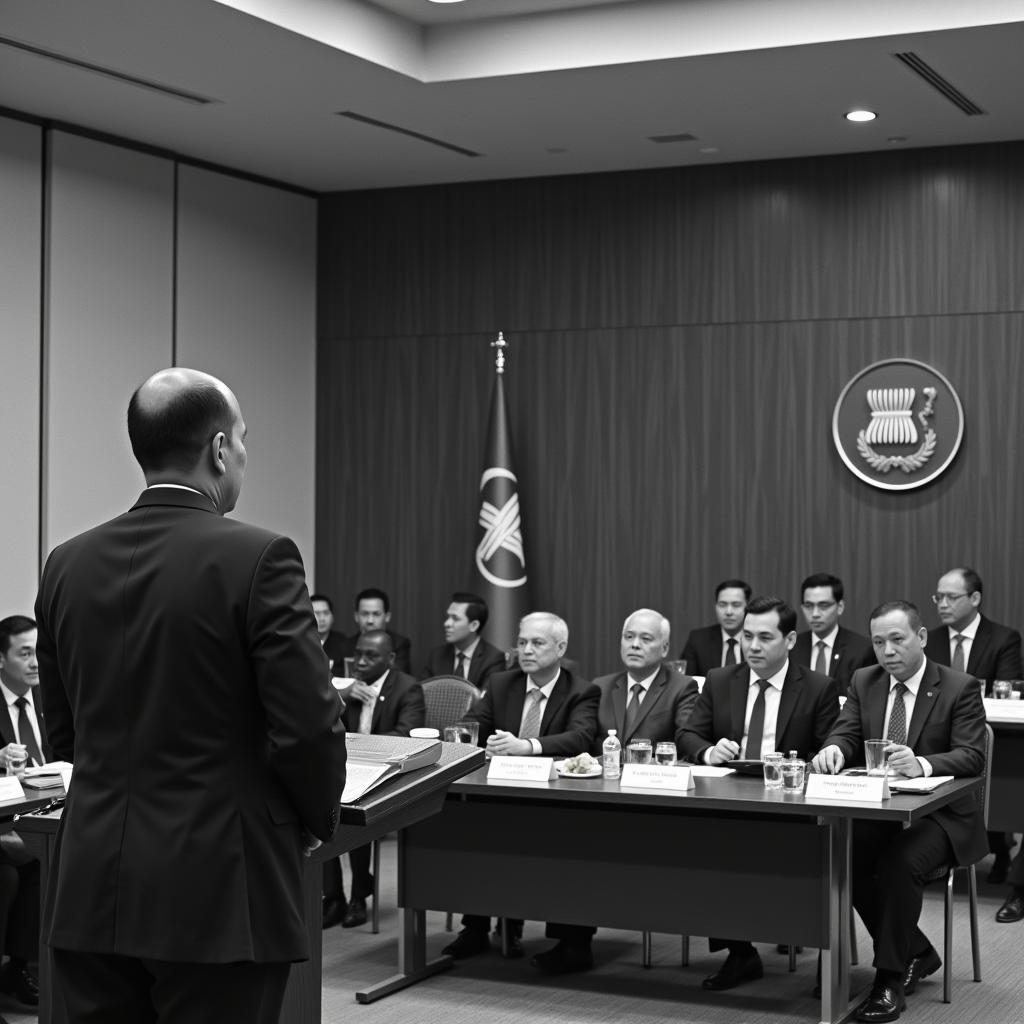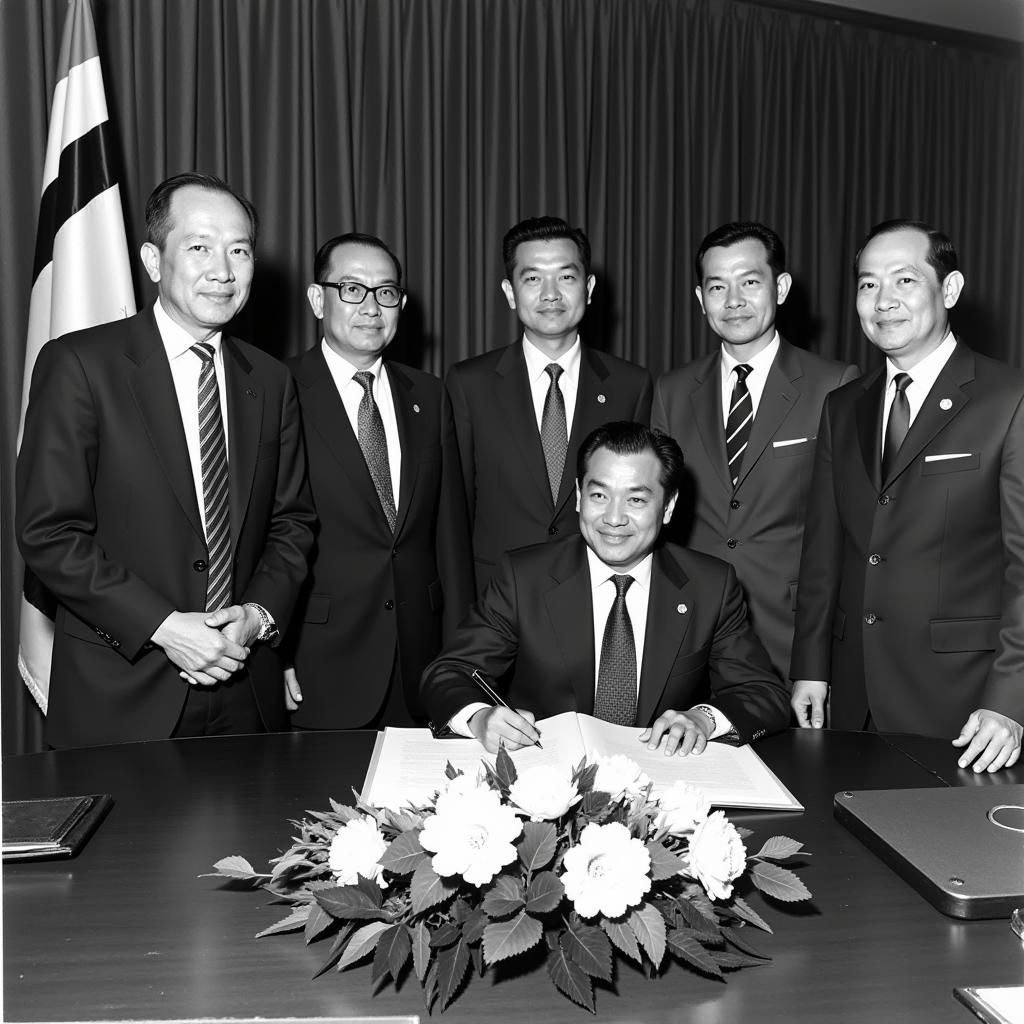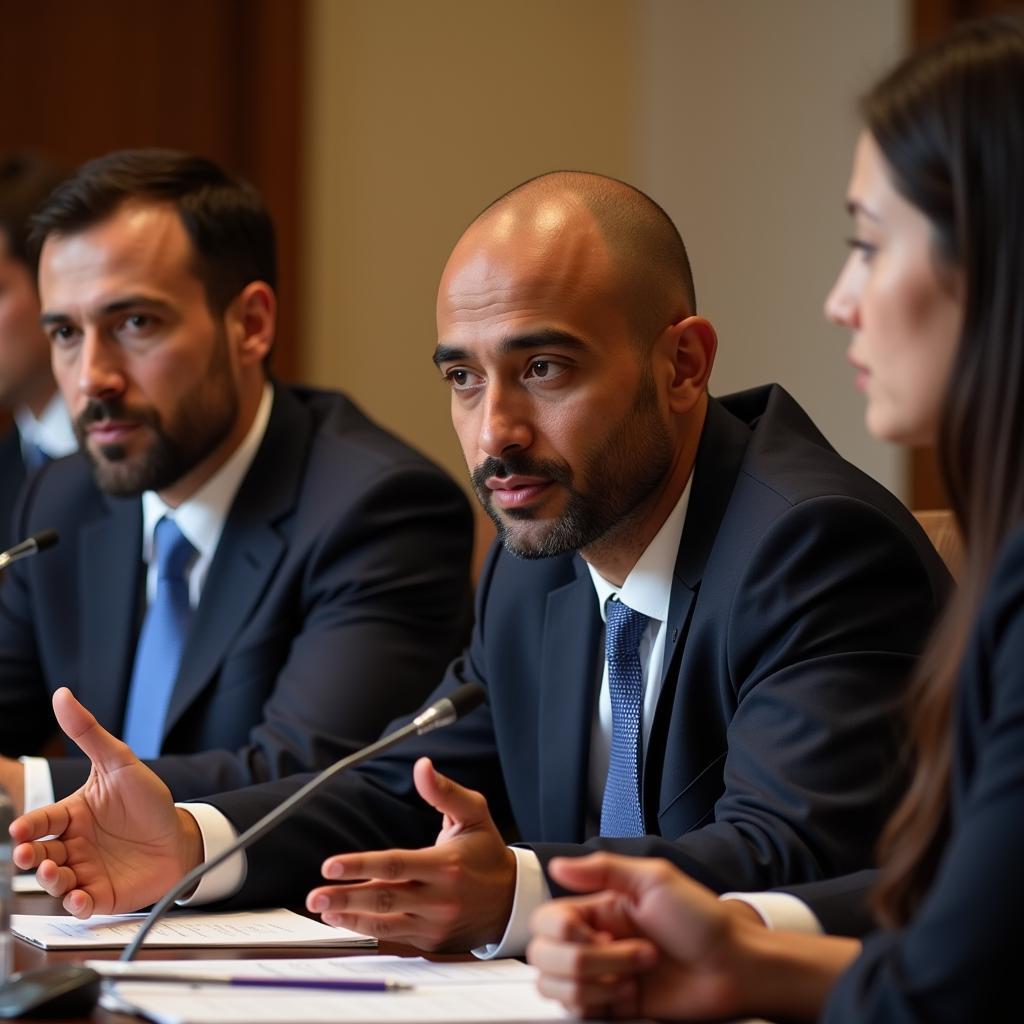Adam Malik, Indonesia’s Foreign Minister from 1966 to 1977, played a pivotal role in the formation and early years of the Association of Southeast Asian Nations (ASEAN). His legacy as a skilled diplomat and advocate for regional unity continues to inspire ASEAN’s path towards a peaceful and prosperous future.
 Adam Malik delivering a speech at an ASEAN meeting
Adam Malik delivering a speech at an ASEAN meeting
From Journalist to Statesman: Adam Malik’s Formative Years
Born in Pematangsiantar, Sumatra, in 1917, Adam Malik’s early life was marked by a passion for journalism and a deep commitment to Indonesian independence. As a young man, he actively participated in the nationalist movement, even facing imprisonment for his beliefs. After Indonesia gained independence in 1945, Malik’s journalistic skills transitioned seamlessly into the realm of diplomacy. He served as Indonesia’s ambassador to several countries before assuming the mantle of Foreign Minister in 1966.
Navigating Turbulent Waters: The Genesis of ASEAN
The 1960s was a period of immense geopolitical uncertainty in Southeast Asia. The Vietnam War cast a long shadow over the region, exacerbating existing tensions and creating divisions among neighboring nations. It was against this backdrop that Adam Malik, along with his counterparts from Thailand, Malaysia, Singapore, and the Philippines, embarked on the historic journey of establishing ASEAN in 1967.
 The Founding Fathers of ASEAN signing the Bangkok Declaration
The Founding Fathers of ASEAN signing the Bangkok Declaration
The signing of the Bangkok Declaration, the foundational document of ASEAN, marked a turning point in Southeast Asian history. It signaled a shared commitment to regional peace, stability, and cooperation, laying the groundwork for decades of economic and social progress.
Adam Malik’s Diplomatic Acumen: Building Bridges and Fostering Trust
Adam Malik’s diplomatic skills were instrumental in shaping ASEAN’s early years. He firmly believed in the power of dialogue and consensus-building, advocating for a non-confrontational approach to regional issues. His ability to bridge ideological divides and foster trust among member states was crucial in navigating the complexities of the Cold War era.
One of Malik’s most significant contributions to ASEAN was his role in promoting the Zone of Peace, Freedom and Neutrality (ZOPFAN) concept. This initiative, adopted by ASEAN in 1971, aimed to establish Southeast Asia as a region free from great power rivalry and interference. ZOPFAN reflected Malik’s vision of an ASEAN that could chart its course based on the principles of self-reliance and regional solidarity.
 Adam Malik engaged in diplomatic discussions
Adam Malik engaged in diplomatic discussions
A Lasting Legacy: Adam Malik’s Enduring Impact on ASEAN
Adam Malik’s contributions to ASEAN extend far beyond his tenure as Foreign Minister. His unwavering belief in regional cooperation and his tireless efforts to promote dialogue and understanding continue to resonate within the organization today. ASEAN’s remarkable growth and development over the past five decades stand as a testament to the vision and dedication of its founding fathers, with Adam Malik occupying a prominent place among them.
FAQ
1. What was Adam Malik’s most significant contribution to ASEAN?
Adam Malik’s contributions were multifaceted, but his role in promoting the Zone of Peace, Freedom and Neutrality (ZOPFAN) stands out as a cornerstone of ASEAN’s commitment to regional stability.
2. How did Adam Malik’s background in journalism influence his diplomatic career?
Malik’s journalistic experience equipped him with strong communication skills, a keen understanding of public opinion, and the ability to navigate complex information landscapes, all of which proved invaluable in his diplomatic endeavors.
3. What is Adam Malik’s legacy for contemporary ASEAN?
Adam Malik’s legacy lies in his unwavering belief in the power of dialogue, consensus-building, and regional cooperation. His vision continues to inspire ASEAN as it navigates the challenges of the 21st century.
4. How did the geopolitical climate of the 1960s influence the formation of ASEAN?
The Cold War and the Vietnam War created a climate of uncertainty and division in Southeast Asia. The formation of ASEAN represented a collective desire to prioritize regional stability and cooperation amidst these global tensions.
5. What were some of the key challenges faced by Adam Malik and his counterparts in establishing ASEAN?
Building trust among nations with diverse political ideologies and historical experiences was a significant challenge. The legacy of colonialism and the ongoing Cold War rivalries added layers of complexity to the task of forging a common regional identity.
6. How did ASEAN benefit from Adam Malik’s leadership?
Malik’s leadership fostered a culture of dialogue and consensus-building within ASEAN. His diplomatic skills and commitment to peaceful resolutions paved the way for the organization’s early successes.
7. What lessons can be drawn from Adam Malik’s approach to diplomacy for contemporary international relations?
Malik’s emphasis on dialogue, respect for national sovereignty, and the pursuit of common ground offers valuable lessons for addressing contemporary global challenges that require multilateral cooperation.
Explore More about ASEAN’s Founding and Evolution
Interested in delving deeper into the history and significance of ASEAN? Explore these related articles:
For any inquiries or assistance, our dedicated customer support team is available 24/7. You can reach us via phone at 0369020373, email at [email protected], or visit our office located in Ngoc Lien Village, Hiep Hoa, Bac Giang, Vietnam.


